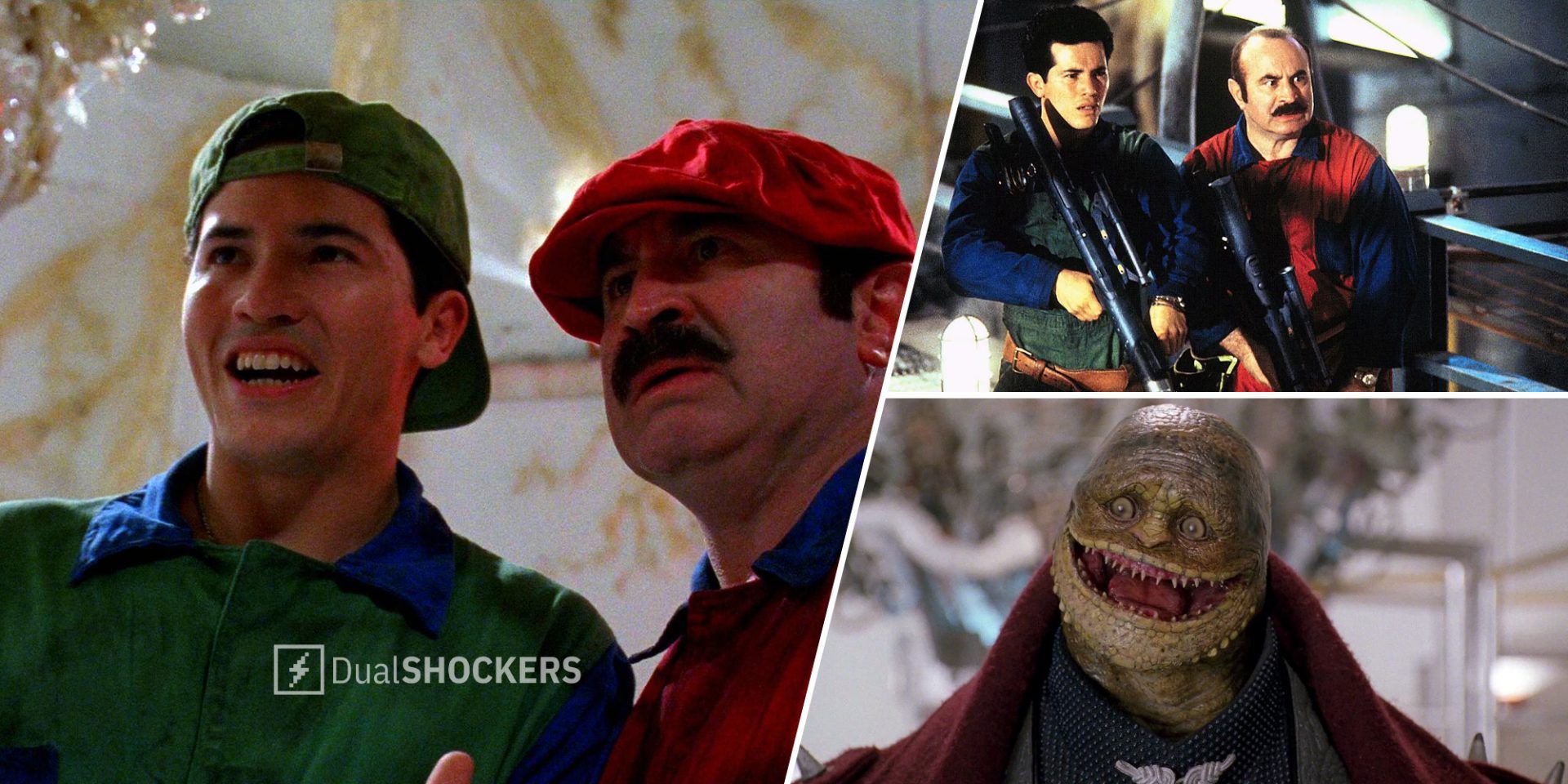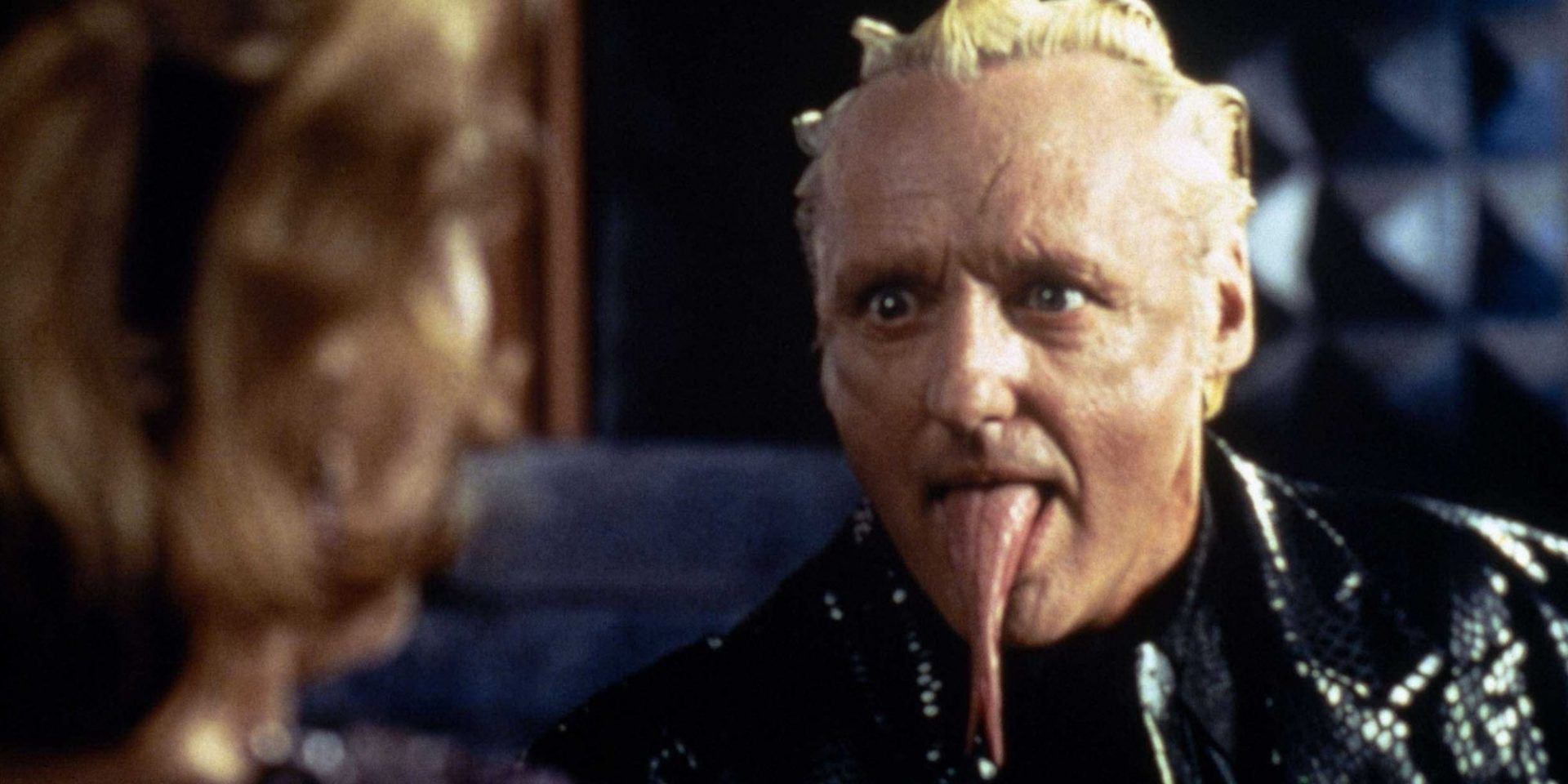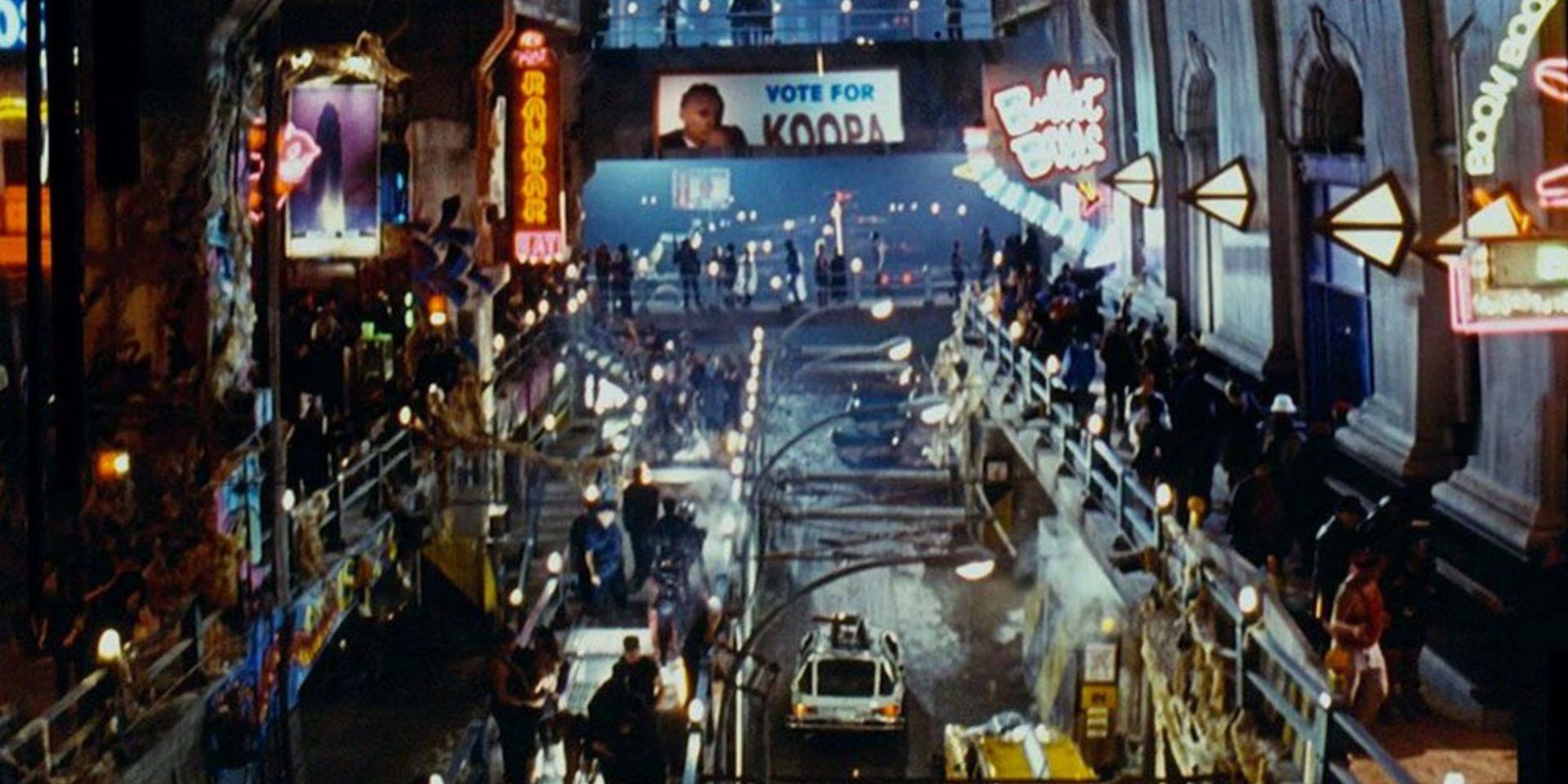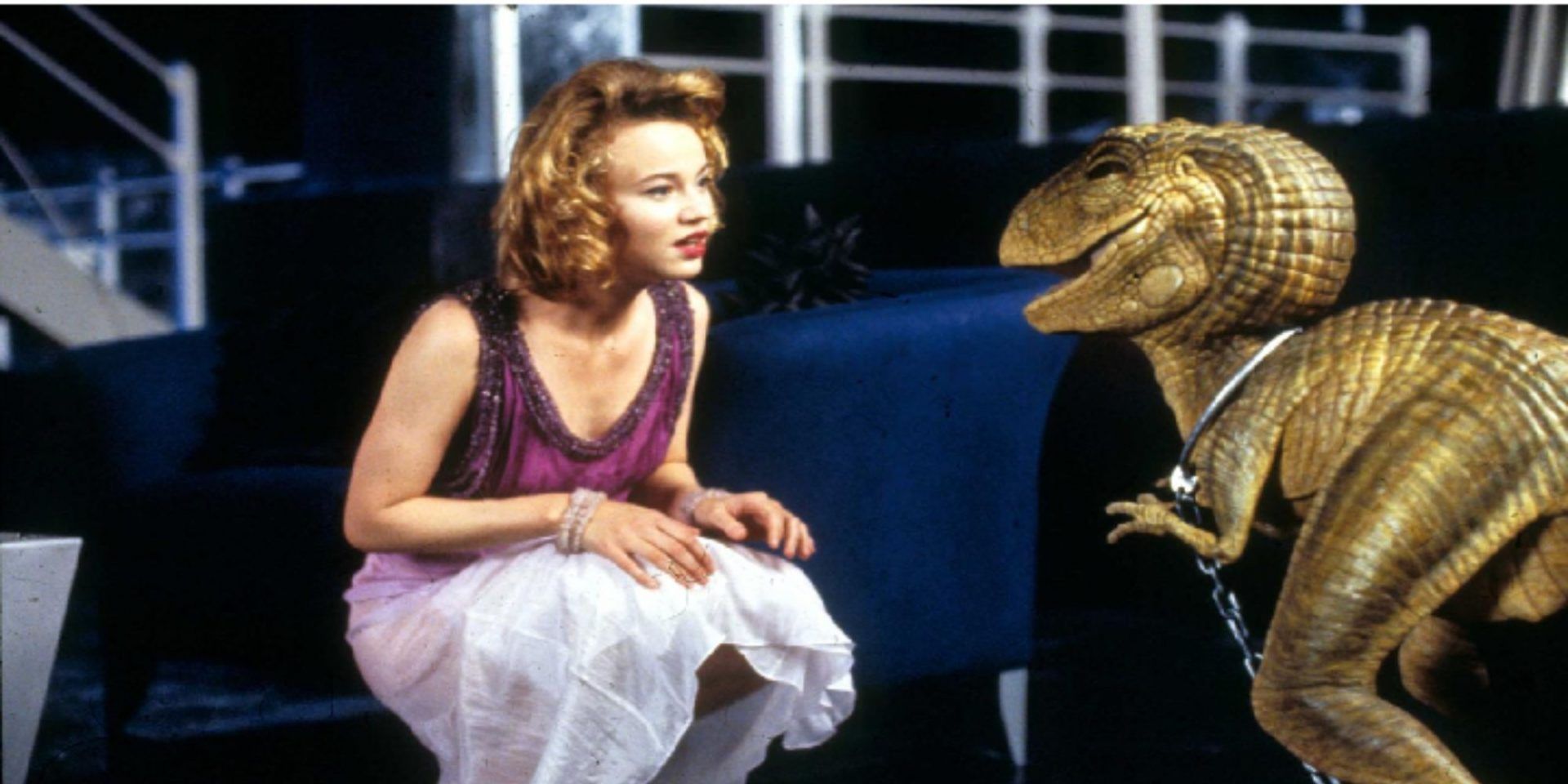In the early 90s, many production companies flocked to Nintendo in hopes of getting the film rights to Super Mario Bros. Among the heavy hitters who met with Nintendo - 20th Century Fox, Columbia, and TriStar Pictures - was a director and producer named Roland Joffé.
Joffé along with Jake Eberts was in charge of Lightmotive, a much smaller production company whose movie The Killing Fields won three Oscars. The company that came away with the rights to Mario after agreeing to only pay $2 million for them. The money for the rights was not a lot, but what enticed Nintendo to accept the offer by Joffé was that Lightmotive would give the video game and console maker full ownership of the merchandising rights and some creative control over the movie's production, which was something the big studios wouldn't do.
With the rights in hand, Eberts and Joffé set out to fill the roles of the three main characters Mario, Luigi, and Bowser - known as King Koopa in the movie. For the role of Mario, the producers honed in on Dustin Hoffman as their first choice, but Nintendo would not sign off on the Oscar-winning actor. According to the book CONSOLE WARS by Blake Harris (via Slash Film), Nintendo President Minoru Arakawa didn't think he was right for the part, and when asked what the reason was, he "squinted ever so slightly, and then quietly said 'no' before moving onto the next thing."
Danny Devito was then pursued but turned down the role after reading the script. The most surprising offer for the role went to Tom Hanks, who agreed to do the movie for $5 million, but there was a bit of a problem. The producers were concerned over the mixed reactions to his most recent movies at the time, Joe Versus the Volcano and The 'Burbs. Nintendo wanted a darker and grittier Mario movie and felt hiring Hanks, who was best known for comedies at the time, didn't fit the style. Before Hanks could put pen to paper, the movie's producers decided to pull the offer. Hanks would go on to win an Oscar for his role in the drama Philadelphia, which was released the same year as Super Mario Bros.
Bob Hoskins was given the role of Nintendo's mascot, with John Leguizamo cast as Luigi shortly after. With their heroes cast, it was time to see who would play the movie's main villain, King Koopa. Dennis Hopper accepted the role after Michael Keaton and Arnold Schwarzenegger turned it down. While the cast was solid, it was the hirings behind the camera that started to cause the turmoil.
Greg Beeman - who directed 1988's License To Drive - was initially hired to direct the movie, but investors didn't feel comfortable investing in a major motion picture with Beeman due to him only having directed one movie. He was replaced by the husband-and-wife team of Rocky Morton and Annabel Jankel, even though they directed one theatrically released movie themselves, D.O.A.
Until Super Mario Bros. Morton and Jankel spent most of their careers directing commercials and music videos, but what got them noticed was their directing work on the TV movie Max Headroom: 20 Minutes Into The Future, which received a TV adaptation after. Prior to their hiring, Barry Morrow, who wrote the screenplay for Rain Man, was hired to write the script but left the project due to creative differences. Jim Jeenewein and Tom S. Parker took over the screenplay, and wrote up something that was very much in line with the Mario mythos. It contained much more of the fantasy element the Mario games were known for and involved Mario, Luigi, and Toad going after King Koopa after he kidnapped Luigi's love interest Hildy in order to gain access to the Crown of Invincibility.
Jankel and Morton who were brought in after Jeenewein and Parker took over writing duties. They loathed the script, fired them, and hired Parker Bennett and Terry Runte to rewrite it. Their version carried over the fantasy element Jeenewein and Parker created, but also leaned way more into sci-fi. Nintendo approved of the script, but Morton and Jankel found it boring and were very hands-on in the writing process, introducing the idea for the movie's plot to involve a parallel universe where the dinosaurs actually survived and evolved into humans and the fungus that was covering its areas and streets.
They later fired Runte and Bennett in the middle of a rewrite and hired Dick Clement and Ian La Frenais to rewrite the script. The producers deemed their script too action-heavy and too far away from the games, causing the producers this time to replace them with Ed Solomon and Ryan Rowe.
They made the movie more lighthearted. A couple of scenes included a proposal and a wedding scene involving Mario and his girlfriend Daniella. Jankel and Morton hated the script, and almost abandoned the project due to the creative limitations put on them by the producers. They stayed on, but before one 'ACTION!' was yelled on set, the movie's script had been rewritten by nine different writers.
Despite this early turmoil, Hollywood Pictures - a production arm of Walt Disney Studios - decided to fund the movie. When the actors arrived on set in North Carolina they were distraught and displeased when they were handed the new scripts. Understanding their displeasure, the producers brought back Parker Bennett and Terry Runte to rewrite it for the 10th time, and act as consultants on set.
In an interview with the LA Times in August 1992, John Leguizamo said "Every day's a new page. It's like waiting for the news. What the hell happened yesterday? And there it is all new, all live. 24 hours ding, ding, ding". The writer of the piece Richard Stayton wrote that the cast and crew heavily disliked Morton and Jankel, often mocking them, and giving them various nicknames including The Hydra - people also wore shirts with the nicknames on them on set.
Hoskins also shared his frustrations with what went on behind the scenes, "All these rewrites are frustrating so I don't do too much research". When the cameras weren't rolling John Leguizamo and Hoskins would drink whisky in-between takes per Leguizamo's autobiography. This led to Hoskins' hand having to be put in a cast after the sliding door on the Mario Bros. truck slid on it during a stunt after Leguizamo hit the gas and brake too quickly.
The most memorable tirade on set went to Dennis Hopper who, according to co-star Richard Edson in a 2018 interview with The Guardian, walked onto the set and yelled "You rewrote my lines [to the directors]! You call this writing? This is shit! It’s shit! And the fact you’d do it without asking me?’ He went on and on. He couldn’t control himself." Hopper then went on to do the scene as written three-and-a-half hours after laying into the directors; Edson said the original outburst was 45 minutes, but lunch was called, leading to an extended delay throughout which Hopper continued to yell.
Director Rocky Morton declined to discuss the cast crew's frustrations, saying "It was a tough schedule. It was a big project. It was just very difficult," and he was right. The couple was hired to direct a darker, more serious adaptation of Super Mario Bros, which was part of the pitch Joffé made to Nintendo before securing the film rights. They had to settle for a script that they felt didn't align with their vision and what they'd been hired to do. This was also the first live-action adaptation of a video game, so there wasn't really a blueprint or guide on how to make one.
In the end, the movie's production became the blueprint for what not to do.
When production finished, the tension spilled over into post-production. Jankel and Morton were locked out of the editing room and were only allowed in after seeking help from the Directors' Guild of America. After all the hostility and all of the name-calling on set, it was finally time for the movie to be released. It released in 1993 - the year of a certain other dino movie, Jurassic Park - and it bombed hard.
After 31 weeks in theaters, the movie only made back $20.9 million of its $48 million budget. It was a mess, and for co-directors Jankel and Morton marked the last Hollywood movie they made. The couple have since have gone back to their TV and music video roots.




